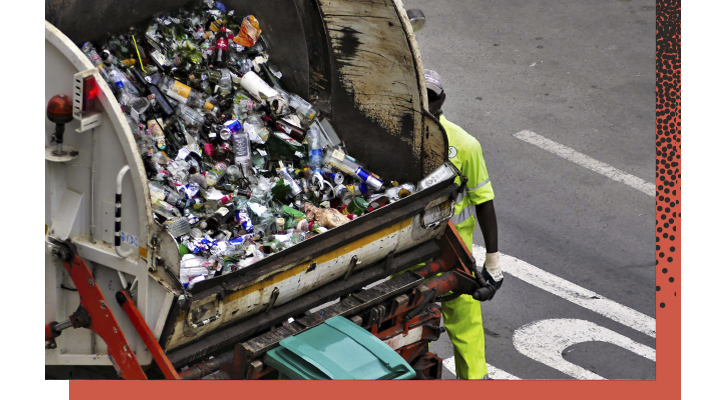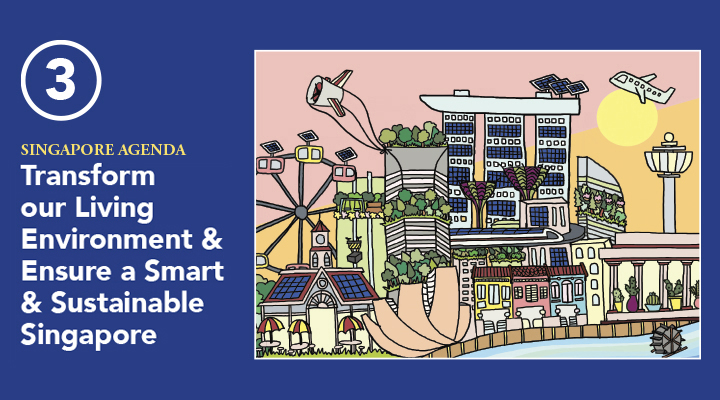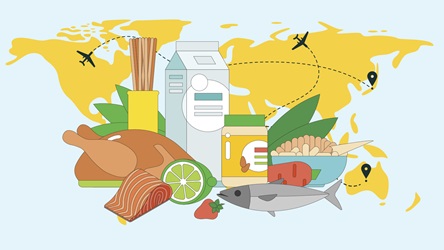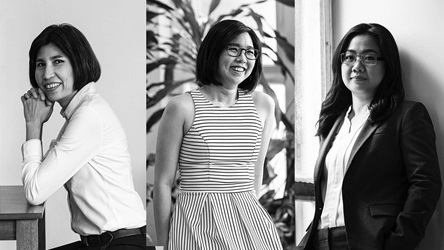Singapore Agenda: The End Of Waste?
The rise of greener lifestyles, as both citizens and the government put in effort to reduce waste.

Bamboo or metal straws, compostable toothbrushes, and even reusable feminine hygiene products. Going green with reusable items and less packaging is in trend – a response to the growing awareness about waste and its impact on our living environment.
For example, decomposing waste generates gases that contribute to the greenhouse effect. Incineration of waste such as plastics can result in air pollution, which may cause acid rain or pose health risks to those who are exposed to pollutants if left unmanaged.
According to the Ministry of the Environment and Water Resources (MEWR), the amount of waste in Singapore has increased seven-fold over the last 40 years.
Singapore’s only landfill on Pulau Semakau, the world’s first offshore landfill when it opened in 1999, is expected to run out of space by 2035. Like many countries globally, Singapore too faces the challenge to manage its waste in a more sustainable manner.
One way that Singapore is looking to tackle this issue is through a circular economy – turning waste into a resource that can be reused in the production cycle. This will open up new opportunities as well. The National Environment Agency (NEA) will soon start field trials to use NEWSand, made from incineration ash, for road construction along Tanah Merah Coast Road.
Government efforts
Under Singapore’s first Zero Waste Master Plan, Singapore plans to reduce the waste sent to its only landfill on Pulau Semakau by 30% each day before 2030. This will extend the landfill’s lifespan beyond 2035.
The masterplan also sets out steps that Singapore must take to minimise its food, packaging and electrical and electronic waste.
Recycling e-waste
About 90% of consumer e-waste in Singapore consists of items like batteries, phones, computers, lamps, large appliances and solar panels.
By 2021, an extended producer responsibility framework for e-waste will be launched. Suppliers of consumer electrical and electronic equipment to the Singapore market will have to join a Producer Responsibility Organisation appointed by the NEA to collect e-waste for recycling.
Other measures in this framework include having the Producer Responsibility Organisation develop programmes to encourage the public to recycle e-waste.
It will also have to provide options for depositing e-waste (such as bins in public areas), collect and transport the discarded e-waste to e-waste recyclers licensed by the NEA, and report to the NEA the amount of waste collected and recycled.
Reducing packaging waste
Packaging waste makes up about a third of the domestic waste discarded in Singapore.
From 2021, producers of packaging and packaged products – supermarkets, brand owners, manufacturers and importers – will have to collect data on the types and amount of packaging they bring to the market. This data must be reported to the NEA.
They will also have to share their plans to reduce the amount of packaging that will end up as waste. For a start, the rule will apply only to firms with an annual turnover exceeding $10 million.
Mandatory reporting is aimed at raising awareness among businesses of the benefits of reducing such waste and spur them to take action, creating possible cost savings for them too.
Reducing food waste
Singapore generated more than 763,000 tonnes of food waste in 2018, a 34% increase from 2008 at 568,000 tonnes.
Meanwhile, the recycling rate of food waste has remained low at not more than 17%.
From 2024, large hotels and malls will have to separate their food waste from all other trash to be specially treated and converted to other uses, such as animal feed or compost for landscaping.
Ground-up efforts to rescue food
The practice of salvaging excess food from markets and catered events is also on the rise.
Ground-up groups like Food Rescue Singapore collect leftover food from events with buffets or catered food. Connected mainly via the Telegram chat app, the group’s network of volunteers share about events where there might be leftover food so that members can “rescue” and redistribute the excess food.
SG Food Rescue is a volunteer group that goes to wholesale markets to collect unsold and excess vegetables and fruits, including “ugly food” that is edible but deemed unsuitable for sale. Whenever the group’s volunteers visit Pasir Panjang Wholesale Centre, group founder Daniel Tay says about 50–80% of the food collected is salvageable.
SGPA THRUST #3
Transform Our Living Environment and Ensure a Smart and Sustainable Singapore
The shift towards more sustainable living is a response to some of the changes that we are facing in our living environment. As Singapore develops, we will face growing spatial constraints, ageing infrastructure, and diminishing leases. The existential threat of climate change also looms.
Looking to the future, how will we reimagine our future living environment, going beyond a “city in a garden” and taking steps to protect the long-term future of Singapore?
We will do this by:
- Transforming the way we live, work and play in areas such as city planning, housing, greening, and transport
- Adapting to climate change effects such as rising temperatures and sea levels
- Strengthening our resilience to resource challenges, e.g. through a circular economy and seizing new economic opportunities

“I’ve drawn Singapore as we know it but with floating wind turbines, zero-carbon planes, hydroelectric generators, and lots of solar PVs so hopefully we can have positive energy buildings.”
RELATED STORIES
- POSTED ON
Mar 19, 2020
- TEXT BY
Tuber and Strategy Group, Prime Minister’s Office
- PHOTOS BY
Ibik on Unsplash
-
Deep Dive
Strengthening Singapore’s Food Security









